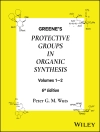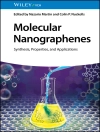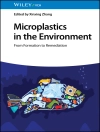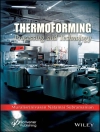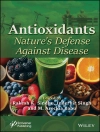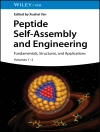Demonstrates the advantages of catalytic cascade reactions
for synthesizing natural products and pharmaceuticals
Riding the wave of green chemistry, catalytic cascade reactions
have become one of the most active research areas in organic
synthesis. During a cascade reaction, just one reaction solvent,
one workup procedure, and one purification step are needed, thus
significantly increasing synthetic efficiency.
Featuring contributions from an international team of pioneers
in the field, Catalytic Cascade Reactions demonstrates the
versatility and application of these reactions for synthesizing
valuable compounds. The book examines both organocatalysis and
transition-metal catalysis reactions, bringing readers up to date
with the latest discoveries and activities in all major areas of
catalytic cascade reaction research.
Catalytic Cascade Reactions begins with three chapters
dedicated to organocatalytic cascade reactions, exploring amines,
Brønsted acids, and the application of organocatalytic cascade
reactions in natural product synthesis and drug discovery. Next,
the book covers:
* Gold-catalyzed cascade reactions
* Cascade reactions catalyzed by ruthenium, iron, iridium,
rhodium, and copper
* Palladium-catalyzed cascade reactions of alkenes, alkynes, and
allenes
* Application of transition-metal catalyzed cascade reactions in
natural product synthesis and drug discovery
* Engineering mono- and multifunctional nanocatalysts for cascade
reactions
* Multiple-catalyst-promoted cascade reactions
All chapters are thoroughly referenced, providing quick access
to important original research findings and reviews so that readers
can explore individual topics in greater depth.
Drawing together and analyzing published findings scattered
across the literature, this book provides a single source that
encapsulates our current understanding of catalytic cascade
processes. Moreover, it sets the stage for the development of new
catalytic cascade reactions and their applications.
O autorze
PENG-FEI XU, Ph D, is Director of Teaching Affairs and
Professor of Chemistry at Lanzhou University and Deputy Director at
the State Key Laboratory of Applied Organic Chemistry. Dr. Xu also
serves as an Advisory Board member for the Chinese Chemical
Society. During his scientific career, he has published more than
130 papers and received numerous honors and awards, most recently
the Award of New Century Excellent Talents in Universities of China
and the Thieme Journal Award.
WEI WANG, Ph D, is Professor of Chemistry at the
University of New Mexico. Dr. Wang has published more than 160
peer-reviewed papers. He has received several awards, including The
Creative Award from University of New Mexico, The Chinese-American
Chemistry & Chemical Biology Professors Association
Distinguished Junior Faculty Award, and The American Peptide
Society Bruce W. Erickson Young Investigator Award.


